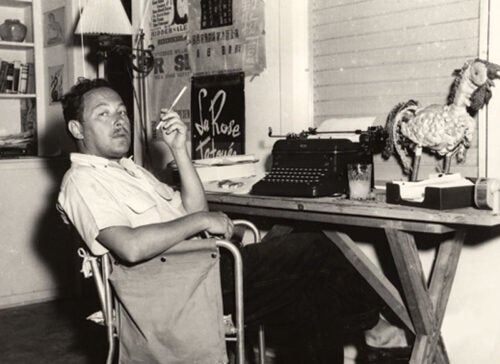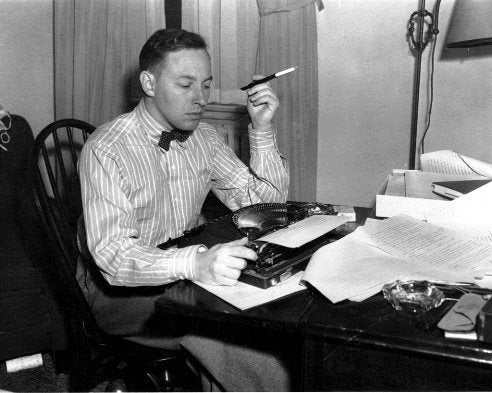The Sewanee Review, the longest-running literary quarterly in the U.S., has published Jacky O’Connor’s essay, “The Literary Factory of Tennessee Williams.”
In her essay, O’Connor discusses Williams’s writing and revision process. She became interested in the topic while researching her 2016 book, Law and Sexuality in Tennessee Williams’s America.
O’Connor’s work in the archives at the Humanities Research Center at the University of Texas and at Columbia University provided her access to thousands of pages of Williams’s manuscripts drafted over his 50-year writing career.

Williams was an expert typist, O’Connor said, and “it was common for him to write a page of dialogue very quickly, tear it out of the typewriter, load a blank sheet of paper, and type the section again. He considered seven other titles before settling on A Streetcar Named Desire, and he worked on many texts for years and even decades, revising them long after initial production or publication.”
Williams typically wrote journal entries and letters in the evening, in which he would describe the success or failure of the day’s writing and set out a plan for the next day.
The Idaho Writers Guild invited O’Connor to give a lecture at its Literary Lunch event in 2014. O’Connor revised and expanded the talk for her piece in The Sewanee Review.

